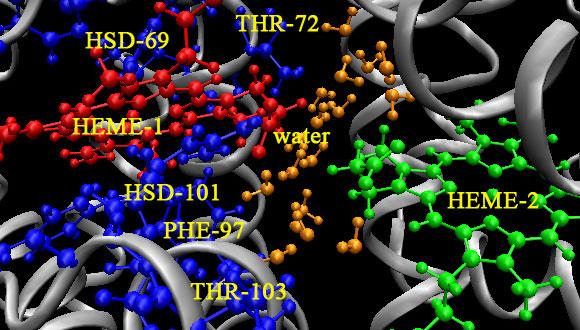Chemical Physics Seminar: Protein activity along DNA from a molecular perspective
Dr. Dana Krepel-Zussman, Rice University
Abstract:
Understanding the molecular and physical principles of the mechanisms of protein-DNA interactions are essential to the understanding of cellular self-organization processes. Protein-DNA interactions may depend on the structural complexity of the proteins and the DNA molecules as well as the cellular environment. Computer-based models can advance the understanding of movement and mechanisms of protein assembly on DNA. Integrating statistical analyses with molecular dynamics simulations, I shed light into several aspects of cellular machinery which can yield many practical applications.
Using an integrative approach combining both crystallographic data and co-evolutionary information, I was able to determine the atomically-detailed structure of bacterial condensin. Condensin is a part of the SMC-kleisin protein complexes, which contribute to the structural maintenance of DNA and are essential for the proper functioning of cells across all domains of life. However, key structural features of these enormous complexes remain controversial. My results indicate that these complexes undergo large structural rearrangements to fulfill their functions. This study provides the foundation for several investigations of the structure-function relationship of the various SMC-kleisin protein complexes at atomic resolution.
I then use the facilitated diffusion analysis to study protein-DNA interactions under crowded environments. The key feature explaining the rapid recognition of a DNA target site by its protein lies in the combination of one- and three-dimensional diffusion, which allows efficient scanning of the many alternative DNA sites. This mechanism is expected to be affected by cellular conditions, particularly crowding. My results serve as an important example that in vivo complexity can increase protein search efficiency along DNA.


